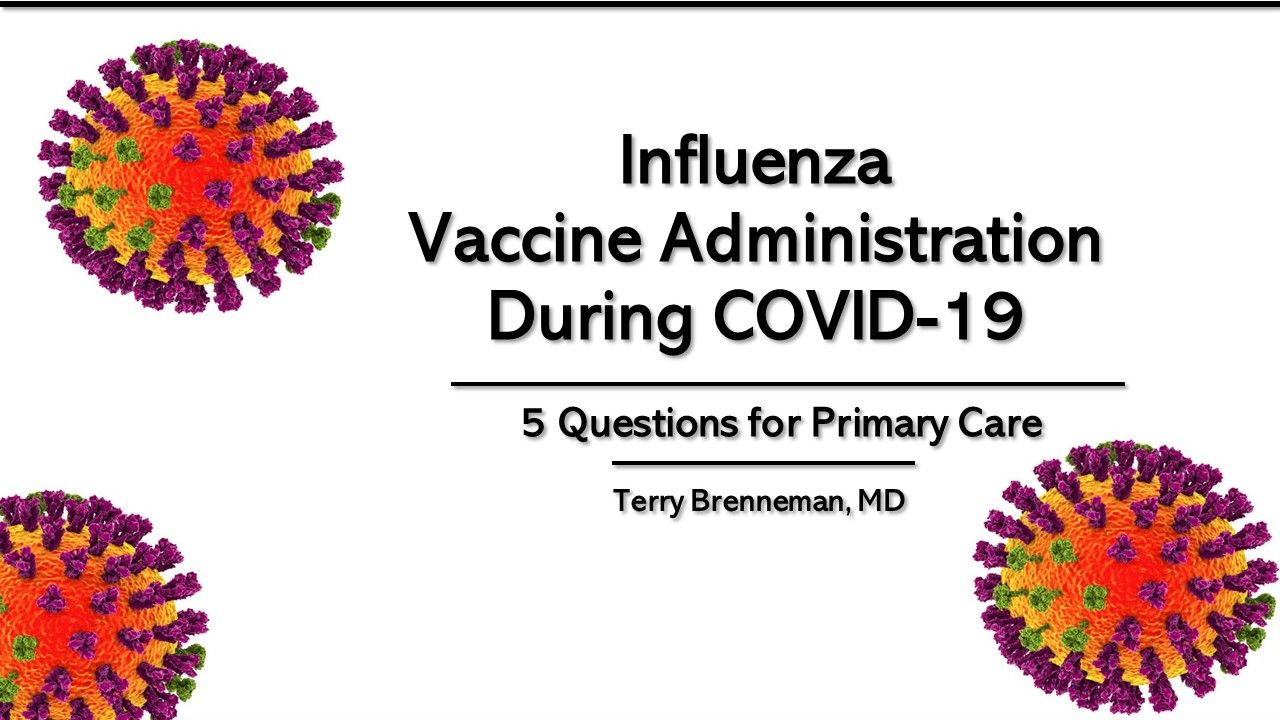© 2025 MJH Life Sciences™ , Patient Care Online – Primary Care News and Clinical Resources. All rights reserved.
Influenza Vaccination During COVID-19: 5 Questions for Primary Care
COVID-19 has changed many of what we know as standard operating procedures during flu season. How would you handle these 5 situations, for example?
The COVID-19 pandemic has changed everything about how we practice medicine, not the least of which is how we treat our patients. How we administer flu vaccine to our patients can this season be added to that list.
How would you handle the 5 situations that follow? Each of these questions may come up for you during the 2021-2022 influenza season.
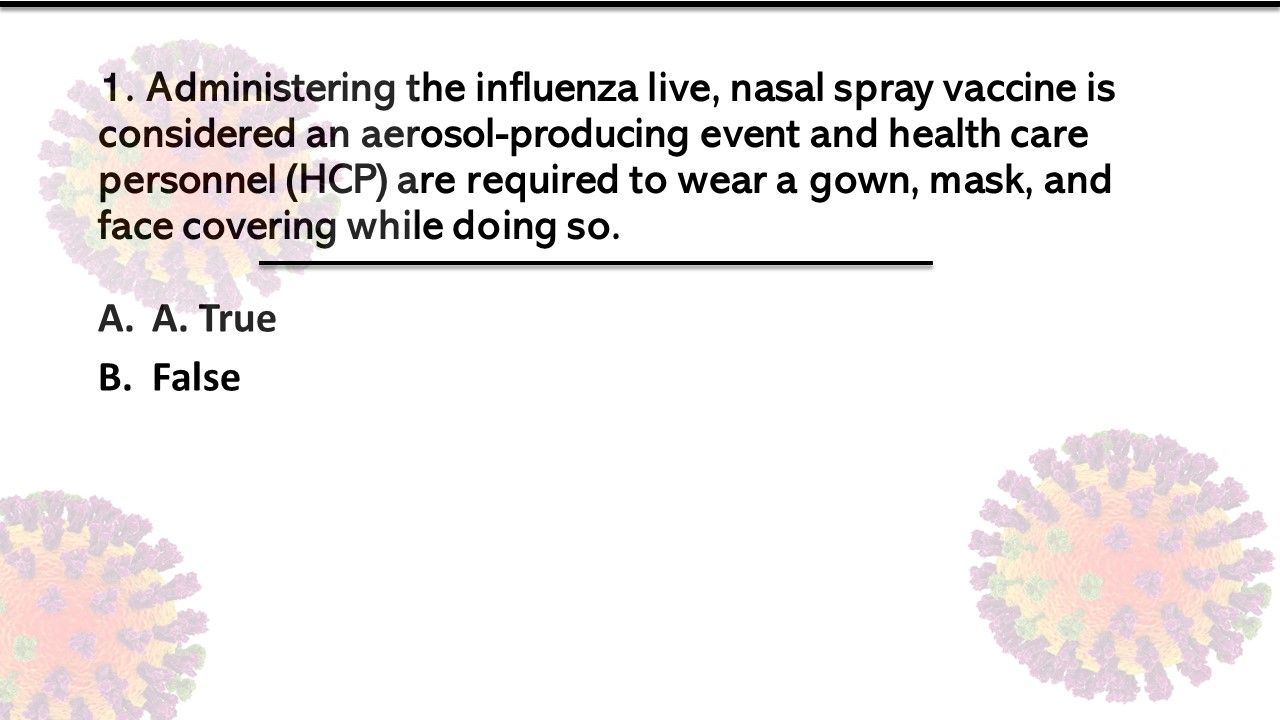
1.True or False? Administering the influenza live, nasal spray vaccine is considered an aerosol-producing event and health care personnel (HCP) are required to wear a gown, mask, and face covering while doing so.
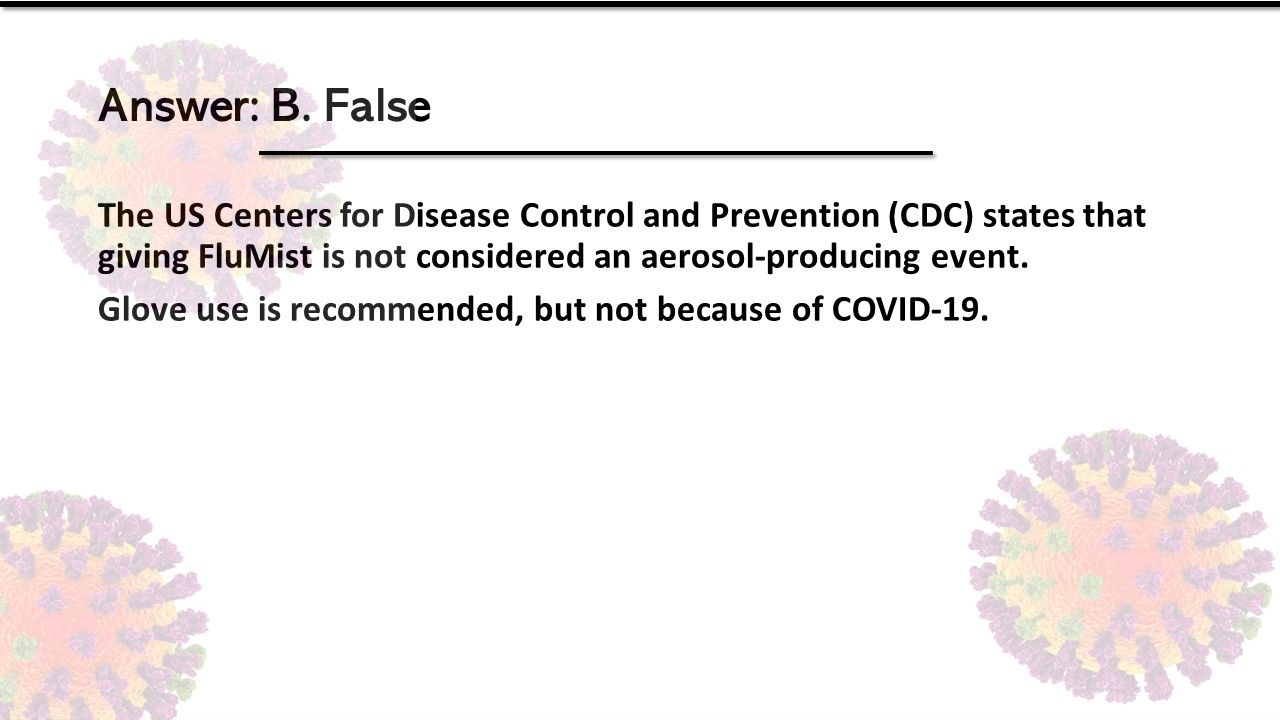
Answer B. False. The US Centers for Disease Control and Prevention (CDC) states that giving FluMist is not considered an aerosol-producing event. Glove use is recommended, but not because of COVID-19.
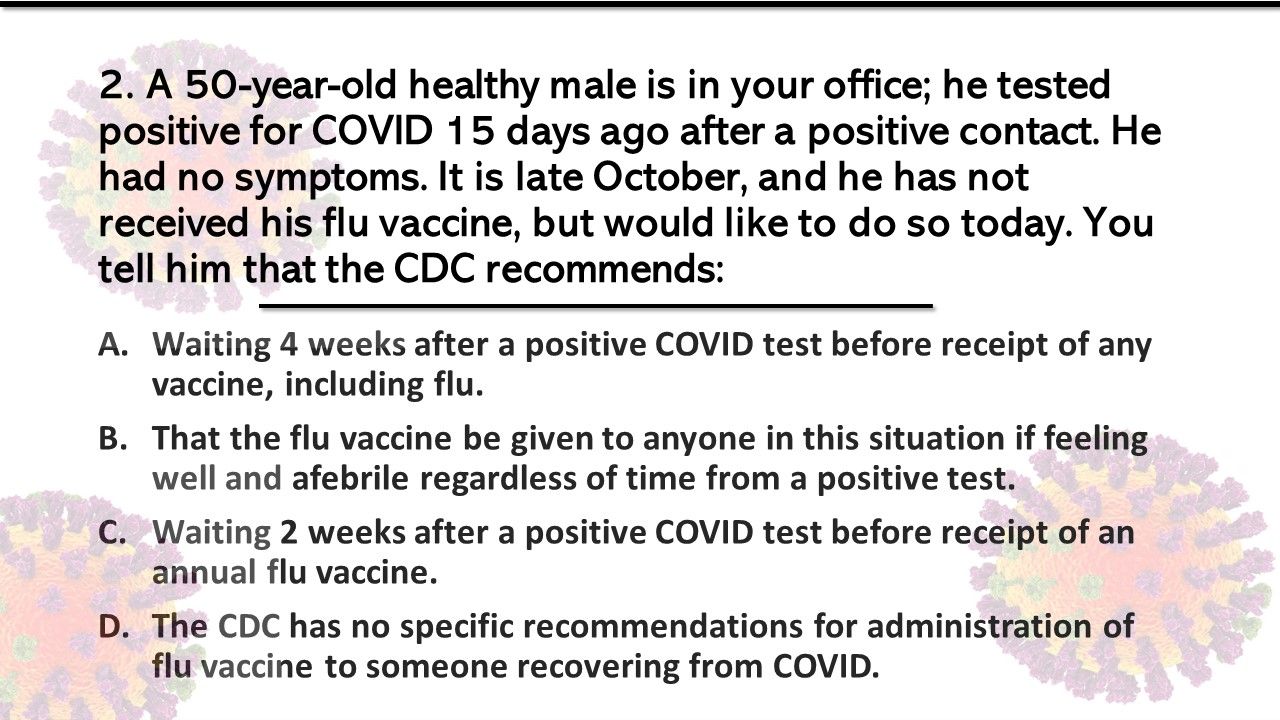
2. A 50-year-old healthy male is in your office; he tested positive for COVID 15 days ago after a positive contact. He had no symptoms. It is late October, and he has not received his flu vaccine, but would like to do so today. You tell him that the CDC recommends which of the above?
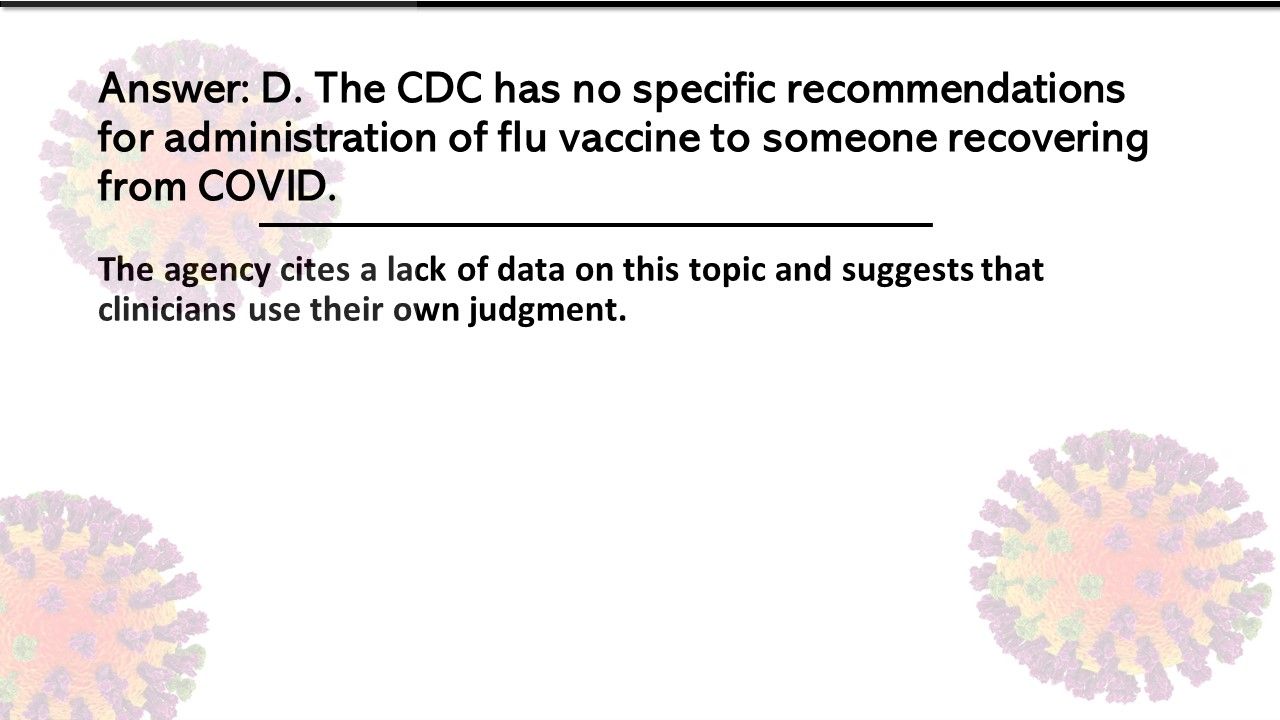
Answer: D. The CDC has no specific recommendations for administration of flu vaccine to someone recovering from COVID. The agency cites a lack of data on this topic and suggests that clinicians use their own judgment.
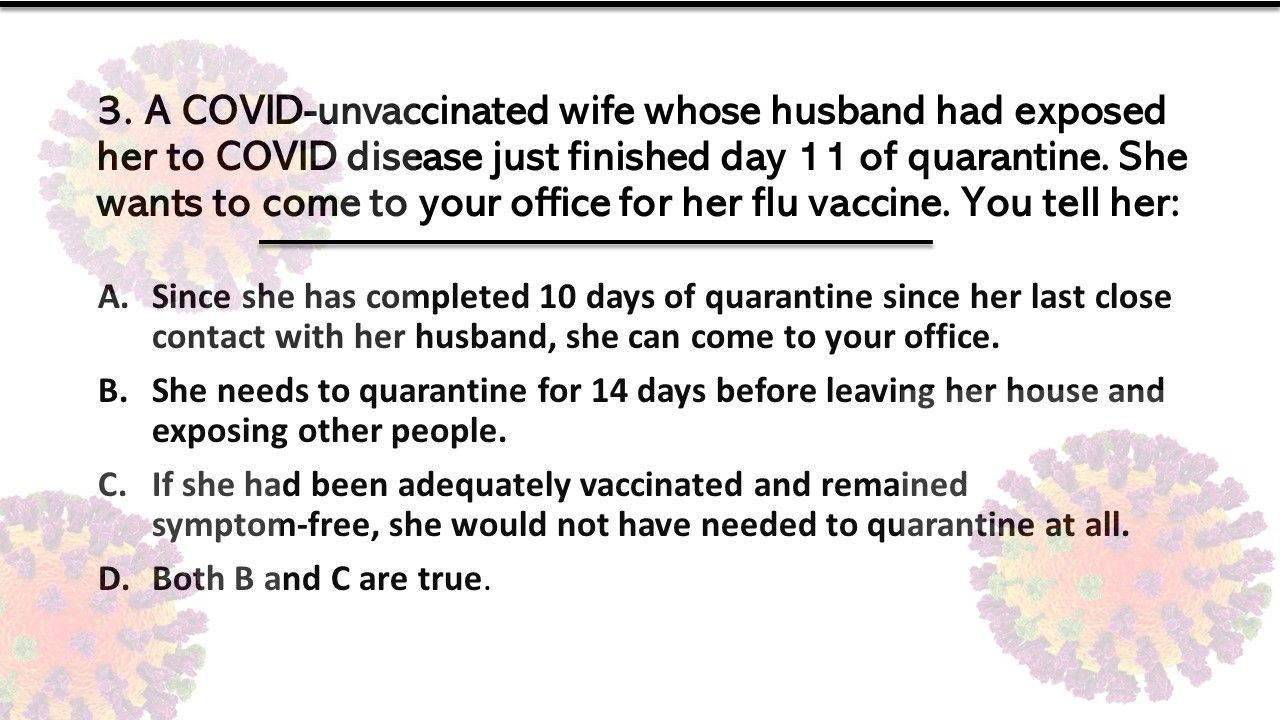
3. A COVID-unvaccinated wife whose husband had exposed her to COVID disease just finished day 11 of quarantine. She wants to come to your office for her flu vaccine. You tell her which of the above?
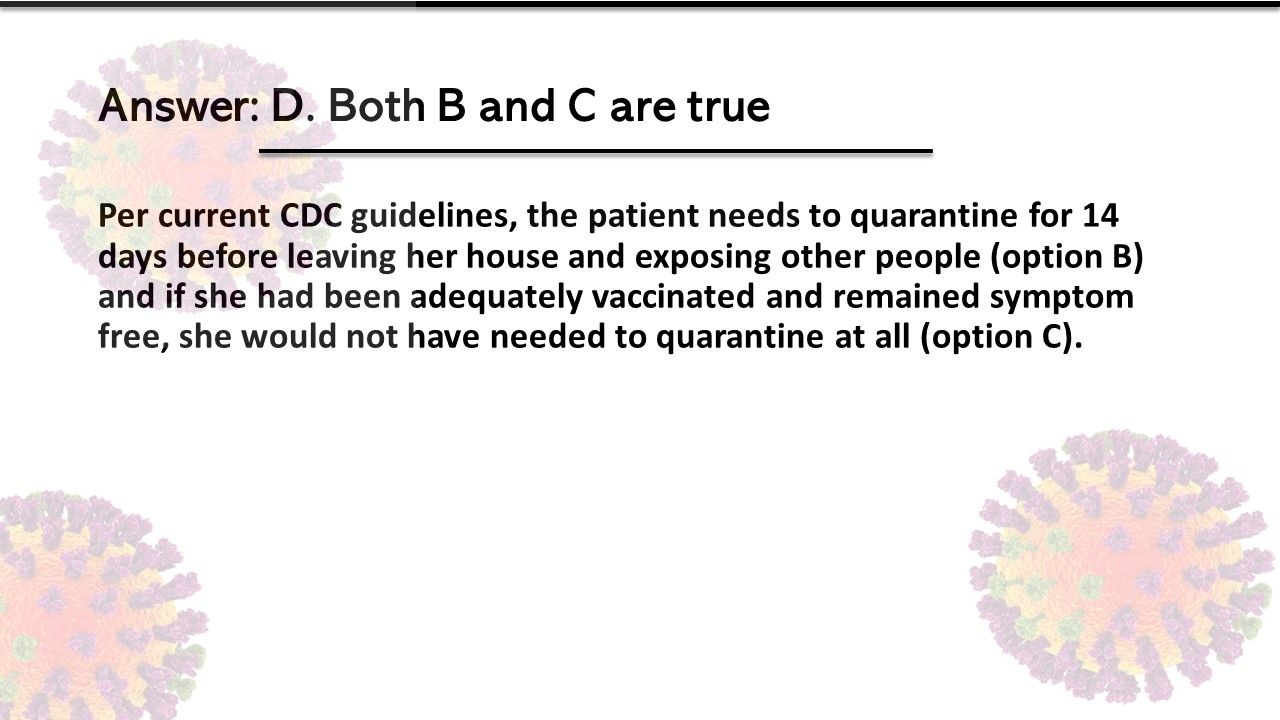
Answer: Both B and C are true. Per current CDC guidelines, the patient needs to quarantine for 14 days before leaving her house and exposing other people (option B) and if she had been adequately vaccinated and remained symptom free, she would not have needed to quarantine at all (option C).
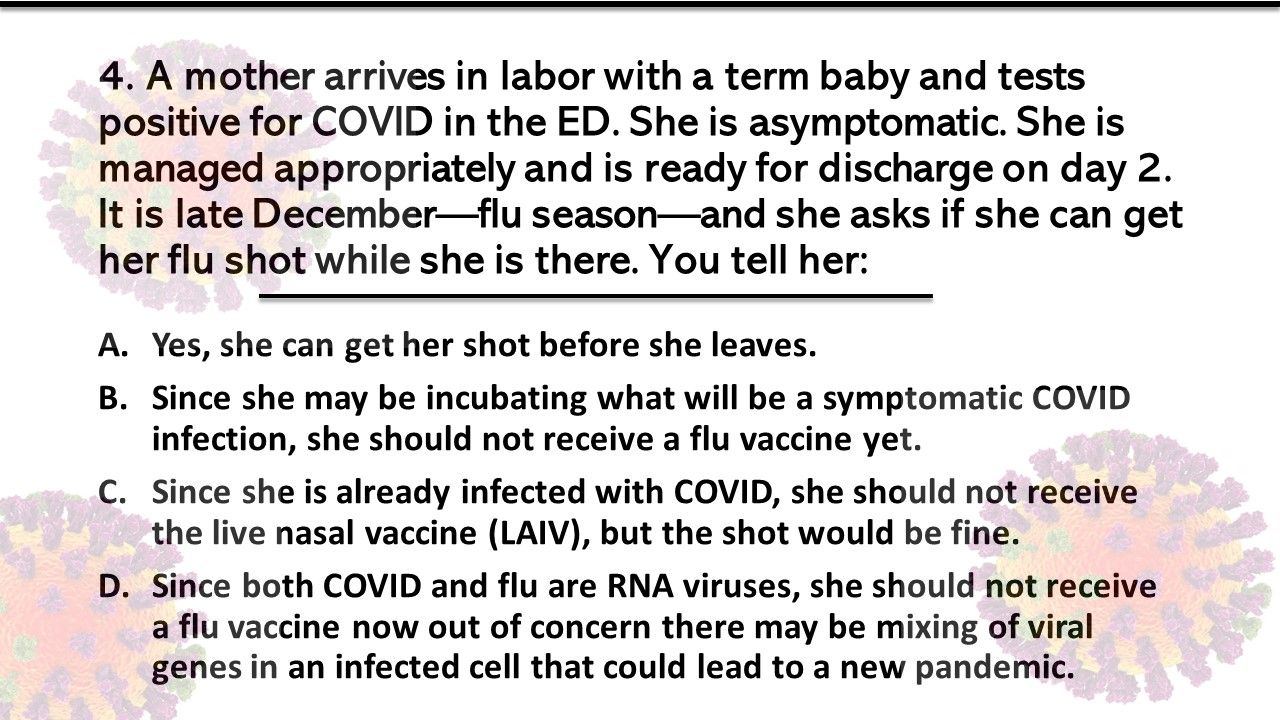
4. A mother arrives in labor with a term baby and tests positive for COVID in the ED. She is asymptomatic. She is managed appropriately and is ready for discharge on day 2. It is late December—flu season—and she asks if she can get her flu shot while she is there. Which of the following answers do you provide?
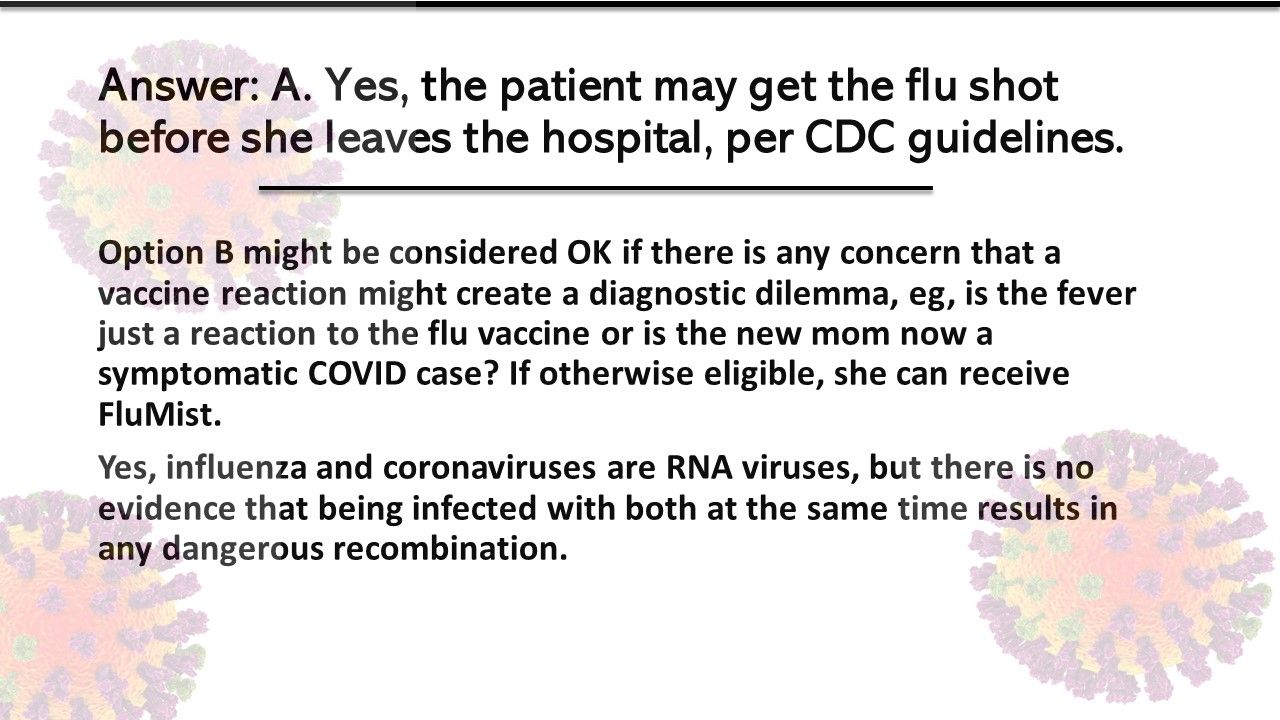
Answer: A. Yes, the patient may get the flu shot before she leaves the hospital, per CDC guidelines. Option B might be considered OK if there is any concern that a vaccine reaction might create a diagnostic dilemma, eg, is the fever just a reaction to the flu vaccine or is the new mom now a symptomatic COVID case? If otherwise eligible, she can receive FluMist. Yes, influenza and coronaviruses are RNA viruses, but there is no evidence that being infected with both at the same time results in any dangerous recombination.
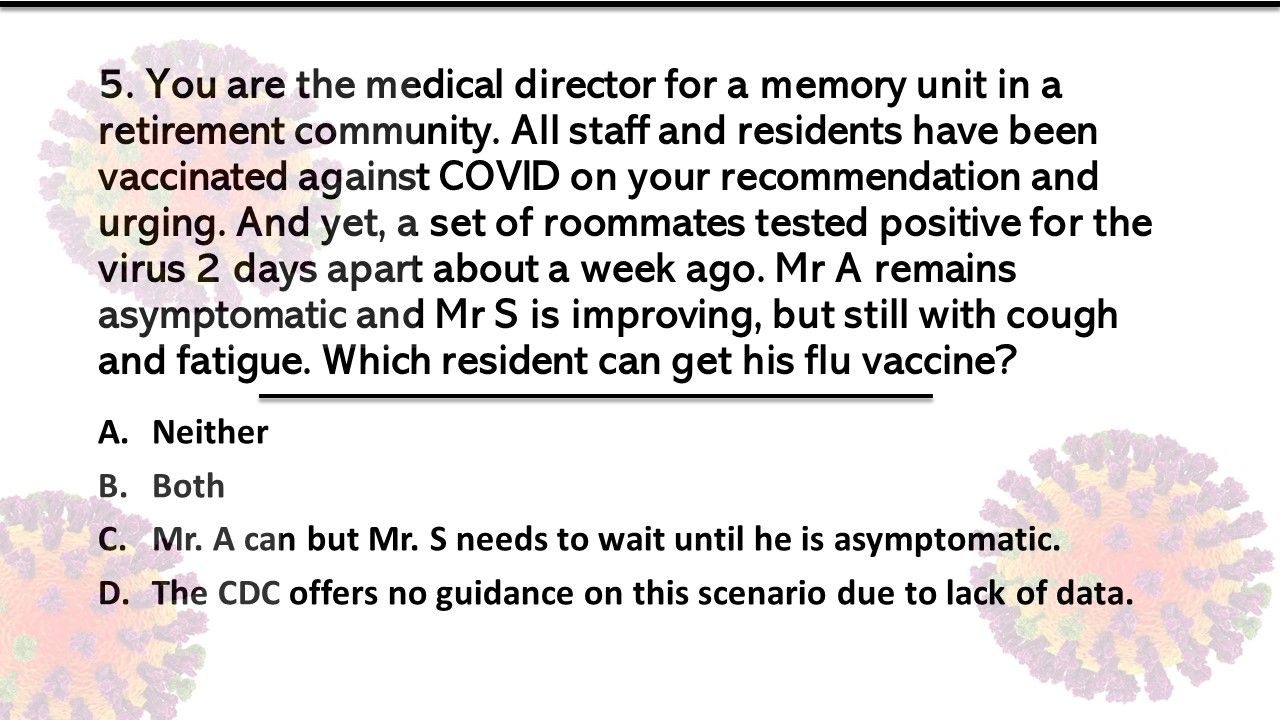
5. You are the medical director for a memory unit in a retirement community. All staff and residents have been vaccinated against COVID on your recommendation and urging. And yet, a set of roommates tested positive for the virus 2 days apart about a week ago. Mr A remains asymptomatic and Mr S is improving, but still with cough and fatigue. Which resident can get his flu vaccine?
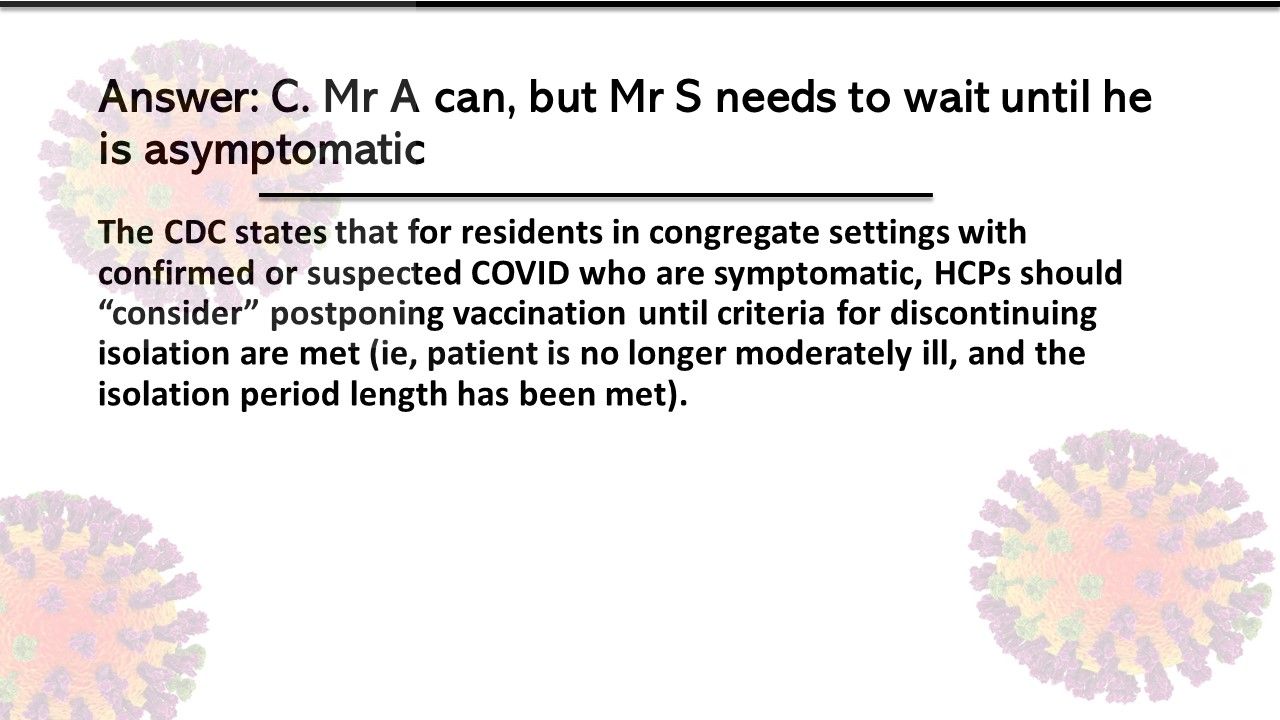
Answer: C. Mr A can, but Mr S needs to wait until he is asymptomatic. The CDC states that for residents in congregate settings with confirmed or suspected COVID who are symptomatic, HCPs should “consider” postponing vaccination until criteria for discontinuing isolation are met (ie, patient is no longer moderately ill, and the isolation period length has been met).
Additional information on influenza vaccination during COVID-19 is available at the Centers for Disease Control and Prevention.
Related Content:

